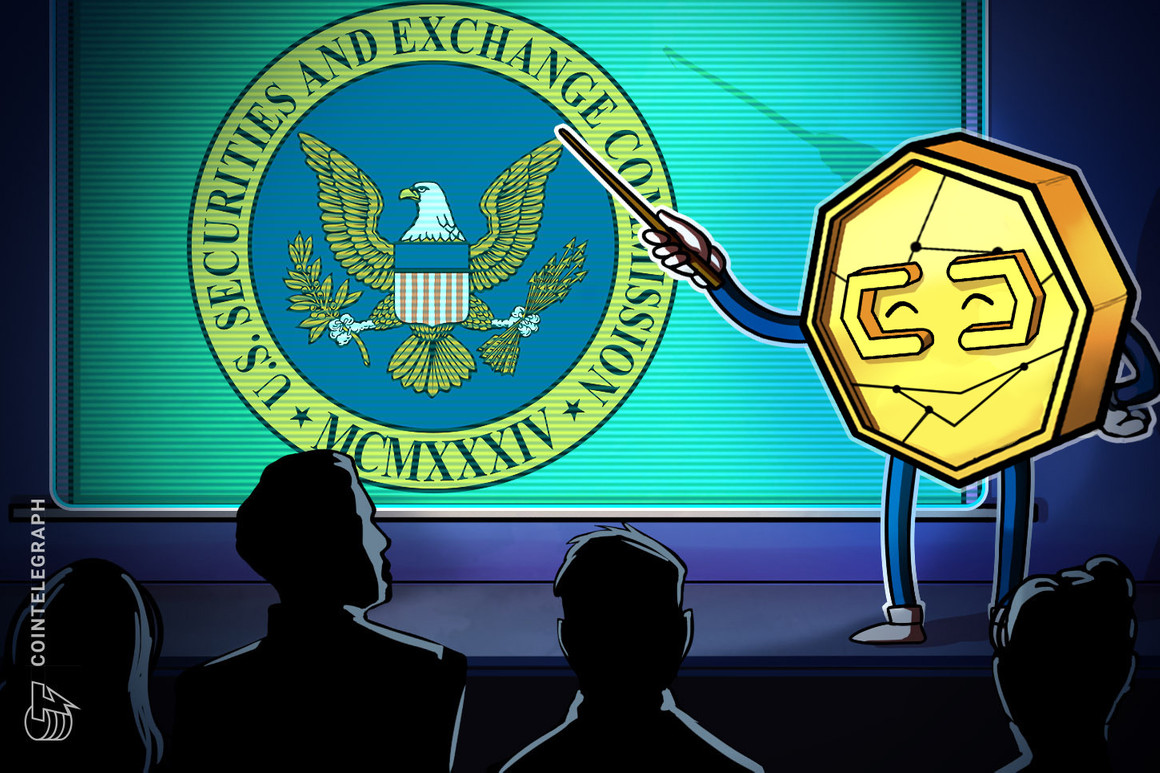Hinman documents suggest SEC is the wrong agency to govern digital assets, crypto lawyer says

[ad_1]

On June 13, the long-awaited Hinman documents were finally unsealed and released to the public. The unveiled documents offer valuable insights into a significant speech delivered in 2018 by Bill Hinman, the former director of the United States Securities and Exchange Commission’s (SEC) corporation finance division.
In this 2018 speech, Hinman shared his perspective that Ether (ETH), one of the largest cryptocurrencies, should not be categorized as a security. The Hinman documents consist of internal communications within the SEC, providing a comprehensive view of the agency’s discussions and considerations leading up to and following Hinman’s speech.
In light of the recent release of the documents, Cointelegraph reached out to John Deaton, a crypto lawyer and founder of CryptoLaw, to shed some light on the significance of the documents.
In the interview, Deaton emphasized that the documents provide support for Ripple, Coinbase and other entities that have faced what he perceives as unjust targeting by regulators. Deaton suggested that these documents may not only influence public opinion but also potentially shape legislative discussions in Congress, as they raise concerns about the conduct of regulators and the interpretation of existing laws.
In his words: “The documents are what I expected in two ways. One, it helps Ripple, Coinbase, and others being unfairly targeted by regulators playing fast and loose with the law they took an oath to uphold. How much it helps in the courtroom is yet to be seen, but it certainly helps in the court of public opinion and in the halls of Congress. Two, it highlights the massive conflicts of interests and gross appearances of impropriety by William Hinman and Jay Clayton.”
Clayton, an American attorney, previously served as the chairman of the SEC from May 4, 2017 until Dec. 23, 2020.
Regarding the specific impact on the ongoing legal battle between Ripple and the SEC, Deaton noted that “the documents themselves don’t impact the judge’s underlying analysis of whether XRP was offered/sold by Ripple as an investment contract, or XRP’s status in the secondary markets in the United States.” However, they do strengthen Ripple’s argument that the speech delivered by Hinman caused market confusion and hindered market participants’ ability to understand what was prohibited under existing regulations. He shared:
“The documents do assist Ripple (and others) in arguing that the speech caused greater confusion in the markets causing market participants to lack adequate notice of what was prohibited by existing law.”
Deaton further highlighted the potential consequences of the documents for Ether and ERC-20 tokens. He suggested that the documents may bolster Ether’s position by reducing the likelihood of it being classified as a security by the SEC. He explained:
“I think the speech documents are good for Ethereum ever being called a security by the SEC. It also could help ERC-20 tokens like Dragonchain because those tokens are governed by the Ethereum blockchain and if the SEC claimed the network was sufficiently decentralized then those tokens have even a better fair notice argument than Ripple.”
In response to the overall implications of the documents, Deaton expressed his belief that they underscore the need for Congress to intervene and provide clarity in governing digital assets. He suggested that the SEC may not be the appropriate agency to oversee the crypto industry, given the apparent conflicts of interest and impropriety highlighted by the documents. He shared:
“I think the documents advance the call for Congress to step in and provide clarity and that the SEC is the wrong agency to govern digital assets.”
Finally, Deaton called for an inspector general investigation into why Hinman insisted on delivering the speech despite warnings from the SEC’s Office of the General Counsel and the director of trading markets. Deaton pointed out that Hinman referred to the speech as the “Ether Speech,” further raising questions about potential biases and motivations. He noted:
“I think the documents are a call for an IG investigation into why the speech was insisted on by William Hinman. The Office of General Counsel warned against giving Ether a pass and the director of trading markets specifically said the speech would lead to ‘greater confusion in the market.’ But Hinman was determined to give it. In his email he called the speech itself the ‘Ether Speech.’
Deaton isn’t the only professional who believes there should be an investigation. Stuart Alderoty, Ripple’s chief legal officer, echoed similar sentiments on his Twitter account. He called for an investigation to understand “what or who influenced Hinman, why conflicts (or, at the very least, appearances of conflicts) were ignored, and why the SEC touted the speech knowing that it would create ‘greater confusion.’”
13/An investigation must be conducted to understand what or who influenced Hinman, why conflicts (or, at the very least, appearances of conflicts) were ignored, and why the SEC touted the speech knowing that it would create “greater confusion.”
— Stuart Alderoty (@s_alderoty) June 13, 2023
Related: Ripple files final submission against SEC as landmark case nears end
The release of these documents has sparked discussions about the role of regulators, the clarity of existing laws and the need for oversight in the rapidly evolving crypto industry. As the legal battle between Ripple and the SEC continues, the contents of these documents may have broader implications for the regulatory landscape and market participants alike.
Magazine: Crypto regulation — Does SEC Chair Gary Gensler have the final say?
[ad_2]
Source link
